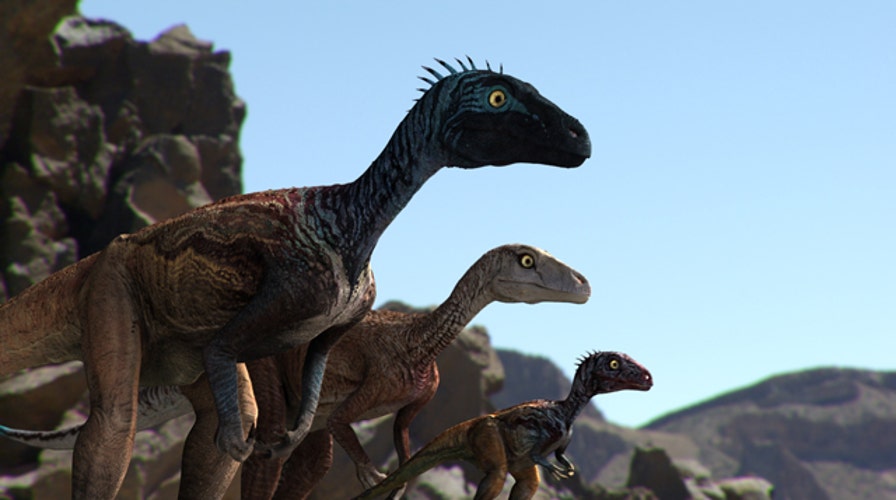Fox News Flash top headlines for July 9
Fox News Flash top headlines are here. Check out what's clicking on Foxnews.com.
A few days after reports emerged of a 4-inch reptile that was a relative of the dinosaurs, researchers have discovered the fossilized remains of a baby raptor in Alaska.
The researchers analyzed the jawbone of juvenile dromaeosaurid, which was found in the Prince Creek Formation of northern Alaska, and concluded that it was born close to where it was discovered.
"There are places where dinosaur fossils are so common that a scrap of bone, in most cases, cannot really add anything scientifically informative anymore: this is not the case with this Alaskan specimen," the study's lead author, Alfio Alessandro Chiarenza of the Imperial College London, said in a statement. "Even with such an incomplete jaw fragment, our team was not only able to work out the evolutionary relationships of this dinosaur, but also to picture something more on the biology of these animals, ultimately gaining more information on this Ancient Arctic ecosystem."
TRACES OF DNA FOUND IN FOSSILIZED DINOSAUR SKULL, SCIENTISTS CLAIM
Chiarenza took to Twitter to share more about the findings.
Dromaeosaurids, a group of dinosaurs that include the Velociraptor, were predatory dinosaurs. In March, researchers announced they had discovered a 67-million-year-old "feathered dinosaur" in New Mexico that may have been one of the last surviving raptors.
It's long been believed that the Arctic was used by dinosaurs to migrate between modern-day Asia and North America, but very little evidence to date has been found they lived there.
"Years ago when dinosaurs were first found in the far north, the idea challenged what we think we know about dinosaurs," the study's co-author, Tony Fiorillo, a paleontologist at Southern Methodist University, added. "For some time afterwards, there was a great debate as to whether or not those Arctic dinosaurs migrated or lived in the north year round. All of those arguments were somewhat speculative in nature."
Fiorillo continued: "This study of a predatory dinosaur jaw from a baby provides the first physical proof that at least some dinosaurs not only lived in the far north, but they thrived there. One might even say, our study shows that the ancient north was a great place to raise a family and now we have to figure out why."
The study has been published in the scientific journal PLOS ONE.
'JURASSIC PARK' GOT NEARLY EVERYTHING WRONG ABOUT DILOPHOSAURUS, NEW STUDY SAYS
Researchers continue to learn more about the migration patterns and habits of dinosaurs. In March, a study was published that looked at the fossilized teeth of a hadrosaur and concluded that its journeys were short, roughly 50 miles.
In April 2019, a study was published that said duck-billed dinosaurs roamed the Arctic 69 million years ago.
Dinosaurs were wiped out 65 million years ago by an asteroid that hit Earth in what is now the Yucatan Peninsula in Mexico.









































